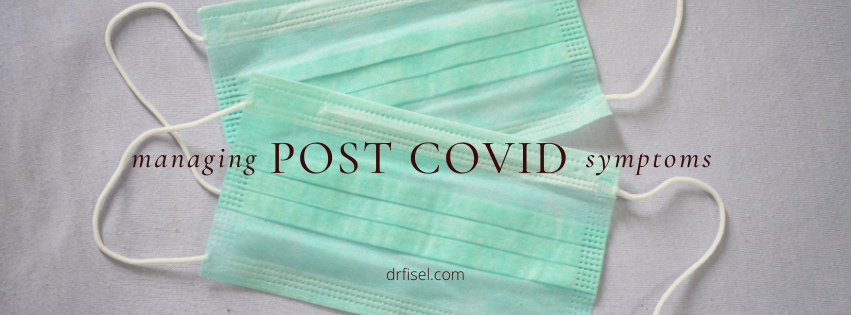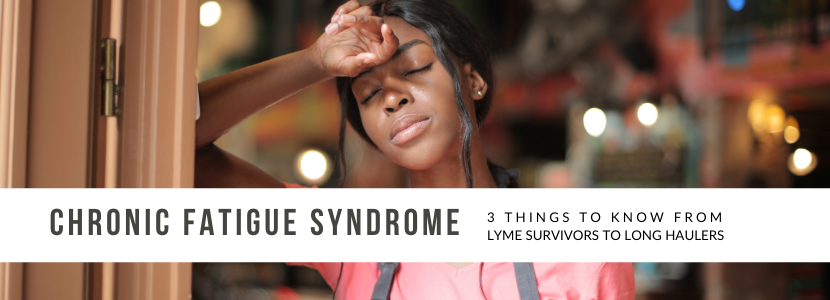
These are unprecedented times. How to live with and through a worldwide pandemic is unknown to most people alive at this time. It is the beginning of YEAR 3 of this new normal.
If we are able to garner anything from history, it is that ours and future generations will forever live in the shadow of COVID-19.
But how do we manage the lingering symptoms in our bodies, post-COVID?
Whether or not you have been infected by COVID-19, the CDC advises that you avoid contracting or spreading the virus by continuing recommended safety measures which are:
- Get vaccinated
- Wear a mask
- Stay socially distanced
- Avoid crowded areas
- Get tested for the virus
- Cover your cough
- Wash your hands frequently
- Disinfect your living/ working spaces
According to the CDC, symptoms of COVID-19 include:
Fever or chills, cough, shortness of breath or difficulty breathing, fatigue, muscle or body aches, headache, new loss of taste or smell, sore throat, congestion or runny nose, nausea, vomiting.
With the rise of the latest COVID-19 variant, it is likely that you or someone you know will be carrying the virus. Symptoms may or may not present themselves, especially if you have already been fully vaccinated.
However, if you have been diagnosed with COVID-19, despite the severity of your illness during the active phase of the virus, you might continue to experience COVID specific symptoms long after the virus has dissipated.
Many people complain of the following symptoms post – COVID:
– Brain fog
– Respiratory Illness
– Fatigue
– Shortness of breath (despite healthy lung function testing)
– Gut related discomfort
– Increased anxiety
Studies show there are commonalities amongst those who suffer from post – COVID symptoms:
“One of the four factors researchers identified is the level of coronavirus RNA in the blood early in the infection, an indicator of viral load. Another is the presence of certain autoantibodies — antibodies that mistakenly attack tissues in the body as they do in conditions like lupus and rheumatoid arthritis. A third factor is the reactivation of Epstein-Barr virus, a virus that infects most people, often when they are young, and then usually becomes dormant.
The final factor is having Type 2 diabetes, although the researchers and other experts said that in studies involving larger numbers of patients, it might turn out that diabetes is only one of several medical conditions that increase the risk of long Covid.” (Su 2022)
COVID sets off a cascade of neuroinflammation, which perpetuates oxidative damage in the brain and nervous system, one of the mechanisms responsible for the lingering symptoms that people experience.
Naturopathic medicine can offer a number of treatments to help normalize dysfunctional immune responses caused by Covid, particularly by targeting neuroinflammation.
Therefore, the therapeutic priority is to minimize oxidative damage with treatments such as green tea, resveratrol, curcumin, glutathione, NAC, magnesium threonate, and bioflavonoids.
We can also look at more detailed labs to help isolate hormonal and immune system imbalances that can then be treated accordingly, particularly therapies that help to normalize the HPA axis.
Mitochondrial repair is also key to a speedier recovery, which usually involves combination therapies that may include ingredients such as CoQ10, PQQ, D-ribose, and acetyl-l-carnitine.
A naturopathic approach to managing your body’s post-COVID responses is to address the root cause of your symptoms and help you find relief while your body becomes regulated.
If you live in the Guilford/ Branford/ New Haven/ Madison/ Clinton area and would like to learn more about how to manage your post-COVID symptoms, Dr. Fisel is here to help. Call (203) 453-0122 or CLICK HERE to schedule a consultation.
REFERENCES
Su, Yapeng. “Multiple Early Factors Anticipate Post-Acute COVID-19 Sequelae.” Cell, 24 Jan. 2022, https://www.cell.com/cell/fulltext/S0092-8674(22)00072-1.



